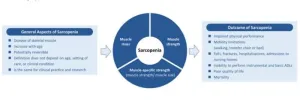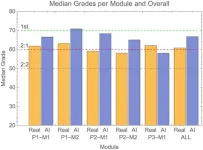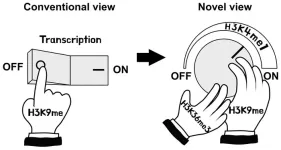EMBARGOED FOR RELEASE UNTIL 4 P.M. ET, WEDNESDAY, JUNE 26, 2024
MINNEAPOLIS – A drug used to prevent migraine may also be effective in people with migraine who experience rebound headaches, according to a new study published in the June 26, 2024, online issue of Neurology®, the medical journal of the American Academy of Neurology.
People with chronic migraine who overused pain medication had fewer monthly migraine and headache days and fewer days using pain medication when taking the migraine prevention drug atogepant.
“There is a high prevalence of pain medication overuse among people with migraine as they try to manage what are often debilitating symptoms,” said study author Peter J. Goadsby, MD, PhD, of King’s College London and a member of the American Academy of Neurology. “However, medication overuse can lead to more headaches called rebound headaches, so more effective preventive treatments are needed. Our findings are encouraging, suggesting atogepant may help reduce the need for pain medication among people with chronic migraine.”
The study involved 755 participants who had chronic migraine, defined as having 15 or more headache days per month with eight or more qualifying as migraine.
Of this group, 66% met the criteria for medication overuse defined as taking pain medications such as aspirin, nonsteroidal anti-inflammatory drugs (NSAIDs) or acetaminophen for 15 or more days in a month, triptans or ergots for 10 or more days a month, or any combination for 10 or more days.
At the start of the study, average monthly migraine days ranged from 18 to 19, and average monthly pain medication days ranged from 15 to 16.
For 12 weeks, participants were either given 30 milligrams (mg) of atogepant twice daily, 60 mg once daily, or a placebo. Atogepant is a calcitonin gene-related peptide receptor antagonist, or CGRP inhibitor. CGRP is a protein that plays a key role in starting the migraine process.
Participants recorded their migraines and headaches in an electronic diary, noting characteristics including duration and intensity, whether they experienced aura or nausea, and if they took other medications.
Researchers found for participants with medication overuse, those taking atogepant twice daily had an average of three fewer migraine days a month and three fewer headache days when compared to those taking placebo. Those taking the drug once a day had two fewer migraine days a month and two fewer headache days compared to placebo. Both groups also had three fewer days of taking pain medications to treat their symptoms when compared to placebo. Researchers say similar reductions were found among participants without medication overuse.
In those with medication overuse, 45% of those taking the drug twice daily and 42% of those taking it once a day had a 50% or more reduction in average monthly migraine days compared to 25% taking the placebo.
The number of people meeting the criteria for medication overuse also declined by 62% among those taking the drug twice daily and by 52% among those taking it once a day.
“Based on our findings, treatment with atogepant may potentially decrease the risk of developing rebound headache by reducing the use of pain medications,” said Goadsby. “This could lead to an improved quality of life for those living with migraine.”
Goadsby noted more studies are needed to evaluate the long-term safety and effectiveness of atogepant, as well as to assess the potential risk of medication overuse relapse among people with migraine.
A limitation of the study was that participants recorded their headaches and medication use in electronic diaries, so it is possible some participants may not have recorded all information accurately.
The study was funded by AbbVie, the maker of atogepant. Goadsby reported that he received personal fees from AbbVie during the study.
Learn more about migraine at BrainandLife.org, home of the American Academy of Neurology’s free patient and caregiver magazine focused on the intersection of neurologic disease and brain health. Follow Brain & Life® on Facebook, X and Instagram.
When posting to social media channels about this research, we encourage you to use the hashtags #Neurology and #AANscience.
The American Academy of Neurology is the world's largest association of neurologists and neuroscience professionals, with over 40,000 members. The AAN’s mission is to enhance member career fulfillment and promote brain health for all. A neurologist is a doctor with specialized training in diagnosing, treating and managing disorders of the brain and nervous system such as Alzheimer's disease, stroke, concussion, epilepsy, Parkinson's disease, multiple sclerosis, headache and migraine.
For more information about the American Academy of Neurology, visit AAN.com or find us on Facebook, X, Instagram, LinkedIn and YouTube.
END
Could preventative drug be effective in people with migraine and rebound headache?
2024-06-26
(Press-News.org)
ELSE PRESS RELEASES FROM THIS DATE:
Pathologists awarded grant from American Society of Hematology
2024-06-26
Dr. Zhen Mei, a clinical pathologist, and Dr. Vivian Chang, a pediatric hematologist-oncologist, both at UCLA Health, have been awarded $30,000 from the American Society of Hematology to revise blood cell ranges for people with Duffy-null Associated Neutrophil Count, which is also known as Duffy-negative.
Those who are Duffy-negative, estimated to be two out of three people identifying as Black in the U.S., lack Duffy antigens on the surface of their red blood cells as a mechanism to resist malaria. This helps provide protection but ...
Revolutionizing ovarian cancer treatment with adaptive PARP inhibitor therapy
2024-06-26
TAMPA, Fla. — Ovarian cancer, often diagnosed at an advanced stage, presents significant treatment challenges because patients tend to develop resistance to conventional therapies quickly. Despite aggressive treatment, recurrence rates remain high, and managing this disease effectively requires innovative approaches. Poly-adenosine ribose polymerase (PARP) inhibitors have emerged as a treatment option, targeting specific DNA repair mechanisms in cancer cells. However, their use is often limited ...
Global consensus for sarcopenia
2024-06-26
“[...] the development of a global conceptual definition of sarcopenia signifies a new dawn for this muscle disease.”
BUFFALO, NY- June 26, 2024 – A new editorial paper was published in Aging (listed by MEDLINE/PubMed as "Aging (Albany NY)" and "Aging-US" by Web of Science) Volume 16, Issue 11, entitled, “Global consensus for sarcopenia.”
In this new editorial, researchers Ben Kirk, Peggy M. Cawthon, and Alfonso J. Cruz-Jentoft from the University of Melbourne and Western Health discuss the global societal issue of skeletal muscle loss and weakness, termed Sarcopenia. Low muscle ...
Ocean’s loss of oxygen caused massive Jurassic extinction. Could it happen again?
2024-06-26
DURHAM, NC – Researchers have discovered a clue in Italian limestone that helps explain a mass extinction of marine life millions of years ago, and may provide warnings about how oxygen depletion and climate change could impact today’s oceans.
“This event, and events like it, are the best analogs we have in Earth's past for what is to come in the next decades and centuries,” said Michael A. Kipp, an earth and climate science assistant professor at Duke University. Kipp co-authored a study published June 24 in the Proceedings of the National Academy of Sciences that measures oxygen loss ...
Shocked quartz reveals evidence of historical cosmic airburst
2024-06-26
(Santa Barbara, Calif.) — Researchers continue to expand the case for the Younger Dryas Impact hypothesis. The idea proposes that a fragmented comet smashed into the Earth’s atmosphere 12,800 years ago, causing a widespread climatic shift that, among other things, led to the abrupt reversal of the Earth’s warming trend and into an anomalous near-glacial period called the Younger Dryas.
Now, UC Santa Barbara emeritus professor James Kennett and colleagues report the presence of proxies associated with the cosmic airburst ...
Chemotherapy disrupts gut microbiome in patients with breast cancer
2024-06-26
COLUMBUS, Ohio – Chemotherapy is known to cause behavioral side effects, including cognitive decline. Notably, the gut microbiome communicates with the brain to affect behavior, including cognition.
“For the first time ever, our Intelligut Study found that the gut microbiome has been implicated in cognitive side effects of chemotherapy in humans,” said senior author Leah Pyter, associate professor of psychiatry and neuroscience with The Ohio State University Wexner Medical Center and College of Medicine. ...
Microrobot-packed pill shows promise for treating inflammatory bowel disease in mice
2024-06-26
Engineers at the University of California San Diego have developed a pill that releases microscopic robots, or microrobots, into the colon to treat inflammatory bowel disease (IBD). The experimental treatment, given orally, has shown success in mice. It significantly reduced IBD symptoms and promoted the healing of damaged colon tissue without causing toxic side effects.
The study was published June 26 in Science Robotics.
IBD, an autoimmune disorder characterized by chronic inflammation of the gut, ...
Sharing false political information on social media may be associated with positive schizotypy
2024-06-26
Sharing false political information on social media by users may be associated with aspects of personality such as positive schizotypy, a set of traits including paranoia, suspicion and disrupted thinking patterns. It may also be linked to a motivation to increase awareness according to a study published June 26, 2024 in the open-access journal PLOS ONE by Tom Buchanan, University of Westminster, UK, and colleagues.
The spread of false political information on social media can tarnish trust in authentic news and even contribute to social unrest. Knowingly or not, a small portion of social media users actively share false material.
Buchanan and ...
AI-generated exam submissions evade detection at reputable UK university
2024-06-26
In a test of the examinations system of the University of Reading in the UK, artificial intelligence (AI)-generated submissions went almost entirely undetected, and these fake answers tended to receive higher grades than those achieved by real students. Peter Scarfe of the University of Reading and colleagues present these findings in the open-access journal PLOS ONE on June 26.
In recent years, AI tools such as ChatGPT have become more advanced and widespread, leading to concerns about students using them to cheat by submitting AI-generated work as their own. Such concerns are heightened ...
The on-and-off affair in DNA
2024-06-26
Researchers led by Kannosuke Yabe, Asuka Kamio, and Soichi Inagaki of the University of Tokyo have discovered that in thale cresses histone H3 lysine-9 (H3K9) methylation, conventionally thought to be a mark of turning off gene transcription, can also turn on gene expression via the interactions of two other proteins and histone marks. The molecular mechanisms demonstrate that rather than functioning as a simple “off switch,” H3K9 methylation is more like a “dimmer switch” that fine-tunes DNA transcription. The discovery suggests there might be similar mechanisms in other ...






